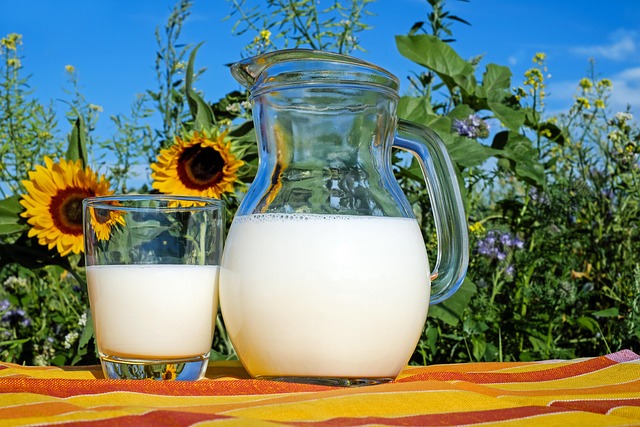When localizing Product Information Leaflets (PILs) for the UK market, translation services must go beyond basic word-for-word rendering. They need to capture cultural nuances, comply with UK regulatory requirements, and translate technical terms accurately. Visual consistency, brand identity preservation, and rigorous Quality Assurance (QA) processes are crucial. Adhering to regulations set by bodies like MHRA and FSA is vital to avoid legal issues. Success is measured through impact, effectiveness, and simplified comprehension while meeting local preferences and legal standards.
In the dynamic, multicultural landscape of the UK market, effective communication through Product Information Leaflets (PILs) is paramount. This article delves into the intricacies of ensuring your PILs resonate with British consumers. We explore key aspects, from understanding the local language and cultural nuances to leveraging professional translation services, visual consistency, and stringent quality assurance processes. Discover how compliance with regulatory standards and measurement of success contribute to the overall effectiveness of UK PIL translations.
- Understanding the UK Market and Language Requirements for PILs
- The Role of Professional Translation Services in Ensuring Accuracy
- Key Considerations when Localizing Product Leaflets for the UK Market
- Maintaining Visual Consistency Across Different Languages
- Quality Assurance Processes for PIL Translations
- Compliance with Regulatory Standards and Legal Implications
- Measuring Success: Evaluating the Impact of UK PIL Translation
Understanding the UK Market and Language Requirements for PILs

Understanding the UK market and its language requirements is essential when it comes to translating product information leaflets (PILs). With a diverse range of regional dialects and official languages, including English as the primary language, ensuring accurate and culturally relevant PILs is crucial for reaching your target audience effectively. The UK’s unique linguistic landscape demands precision in translation services for PILs to convey critical product details without ambiguity or misinterpretation.
Translation services for PILs in the UK should consider more than just word-for-word interpretations. Cultural nuances, local terminology, and regulatory compliance are vital aspects that play a significant role in effective communication. Professional translators with expertise in pharmaceutical or medical fields can adapt content to suit UK preferences while adhering to legal and safety standards, ensuring your PILs are not only accurate but also compliant with local regulations.
The Role of Professional Translation Services in Ensuring Accuracy

When it comes to translating product leaflets for a UK audience, precision and accuracy are paramount. Product Information Leaflets (PILs) serve as essential resources for consumers, providing critical details about products’ features, uses, and safety guidelines. Therefore, ensuring these materials are accurately translated is crucial. This is where professional translation services play a vital role.
Employing expert translators specializing in the pharmaceutical or medical fields guarantees that technical terminology is handled correctly, minimizing errors, and preserving the integrity of the information. These services also cater to cultural nuances, ensuring the PILs are tailored for UK consumers while adhering to local regulatory standards. Professional translation enhances clarity, making complex product details accessible to a diverse range of users.
Key Considerations when Localizing Product Leaflets for the UK Market

When localizing product leaflets for the UK market, several key considerations come into play to ensure effective communication with your target audience. Translation services for Product Information Leaflets (PILs) must go beyond mere word-for-word rendering; they need to capture the cultural nuances and regulatory requirements specific to the UK.
Firstly, understanding the local language variations and idiomatic expressions is vital. What works in one region might not resonate in another. Accurately translating technical terms related to your product is also crucial, ensuring that consumers can make informed decisions about its features and benefits. Additionally, adhering to the UK’s legal and regulatory standards for product labeling is essential to avoid any compliance issues. This includes formatting requirements, safety information, and adherence to specific industry regulations. Effective localization should seamlessly integrate these aspects, guaranteeing that your PILs are not only linguistically correct but also legally compliant and culturally relevant.
Maintaining Visual Consistency Across Different Languages

When translating product leaflets for a UK audience, maintaining visual consistency is vital to ensure an effective communication strategy. PILs (Product Information Leaflets) often include intricate designs, logos, and colour schemes that are integral to the overall brand identity. Professional translation services understand the importance of preserving this aesthetic while conveying the text accurately in the target language. They employ skilled graphic designers who work alongside translators to achieve a perfect balance between form and function.
By utilising specialized translation services for PILs in the UK, businesses can ensure that their visual elements remain consistent across different languages. This consistency is crucial for building brand recognition and trust among local consumers. Moreover, it simplifies the distribution process, as translated leaflets can be easily integrated into existing marketing materials without compromising on design integrity.
Quality Assurance Processes for PIL Translations

When it comes to translating Product Information Leaflets (PILs) for a UK audience, ensuring accuracy and fluency is paramount. Translation services for PILs in the UK should incorporate rigorous Quality Assurance (QA) processes to guarantee that the final document meets both linguistic and contextual requirements. This involves several steps, including meticulous source text analysis, where translators carefully study the original PIL content, identifying any potential challenges or complexities unique to the product and its target market.
Subsequent stages include translation, proofreading, and editing. Professional translators conduct a thorough translation, capturing all technical terminology accurately. Following this, dedicated proofreaders inspect the translated material for grammatical errors, inconsistencies, and cultural appropriateness. Finally, editors refine the text, ensuring it flows naturally in the target language while adhering to UK-specific linguistic conventions and legal requirements for product information dissemination.
Compliance with Regulatory Standards and Legal Implications

When translating product leaflets for the UK market, it’s crucial to ensure compliance with regulatory standards set by bodies like the Medicines and Healthcare products Regulatory Agency (MHRA) for pharmaceuticals or the Food Standards Agency (FSA) for food products. These regulations cover not just text but also formatting, layout, and design elements to guarantee consumer safety and clear product information.
Legal implications are significant, as inaccurate or inadequate translations can lead to severe consequences, including product recalls, fines, and damage to a company’s reputation. Therefore, employing professional translation services specializing in Product Information Leaflets (PILs) for the UK is essential. Such services not only ensure linguistic accuracy but also possess expertise in navigating regulatory requirements, providing peace of mind and safeguarding against potential legal pitfalls.
Measuring Success: Evaluating the Impact of UK PIL Translation

Measuring success in the context of UK PIL translation involves evaluating the impact and effectiveness of the translated materials. It’s not solely about achieving accurate word-for-word equivalent but ensuring that the essence, tone, and nuances of the original content are preserved. This includes understanding how well the translated leaflets communicate product information, maintain brand consistency, and adhere to legal and regulatory requirements specific to the UK market.
Translation services for Product Information Leaflets (PILs) in the UK should strive for more than linguistic proficiency. They must consider factors like cultural adaptation, localization, and the ability to simplify complex scientific or technical jargon, ensuring that the target audience can easily comprehend the information. Effective evaluation methods include post-translation reviews, customer feedback, and tracking key performance indicators (KPIs) such as product sales, customer satisfaction ratings, and any legal compliance issues arising from the translation process.
When it comes to translating Product Information Leaflets (PILs) for the UK market, leveraging professional translation services is paramount. By understanding the unique language requirements and cultural nuances of the UK, maintaining visual consistency, and adhering to strict quality assurance processes, businesses can ensure their PILs are accurate, compliant, and effective. This approach not only enhances customer experience but also strengthens brand reputation in one of the world’s most demanding markets. Translation services for Product Information Leaflets (PILs) UK play a crucial role in facilitating successful localization strategies.
